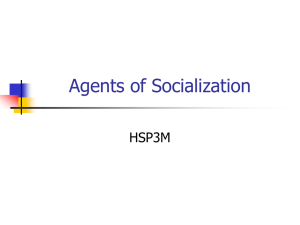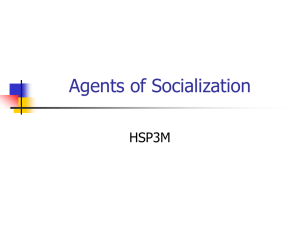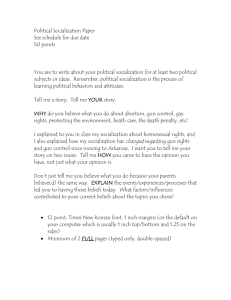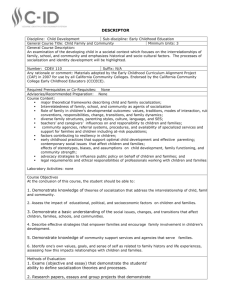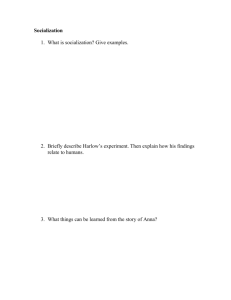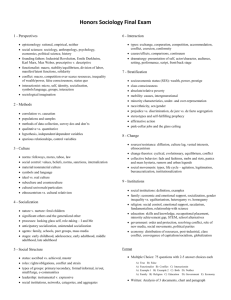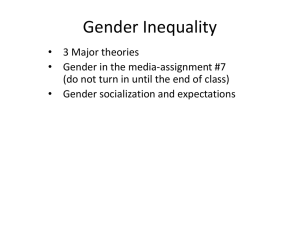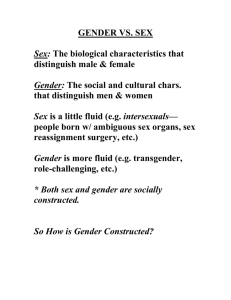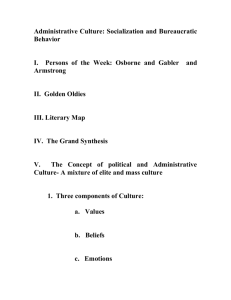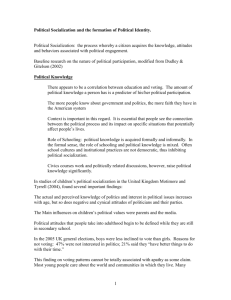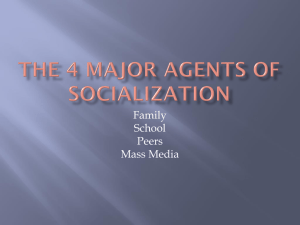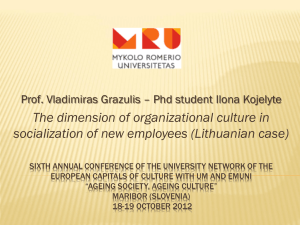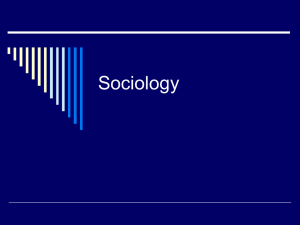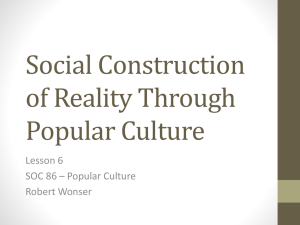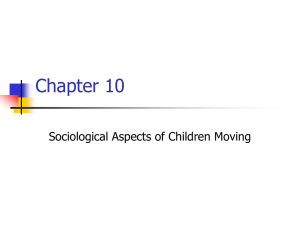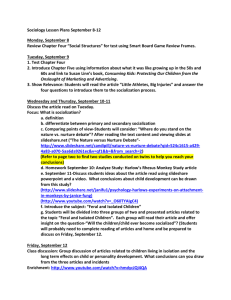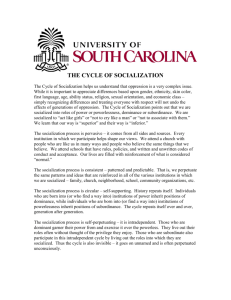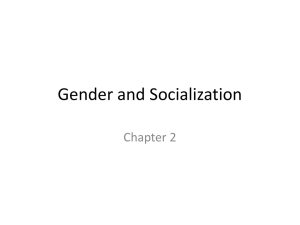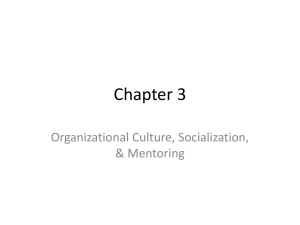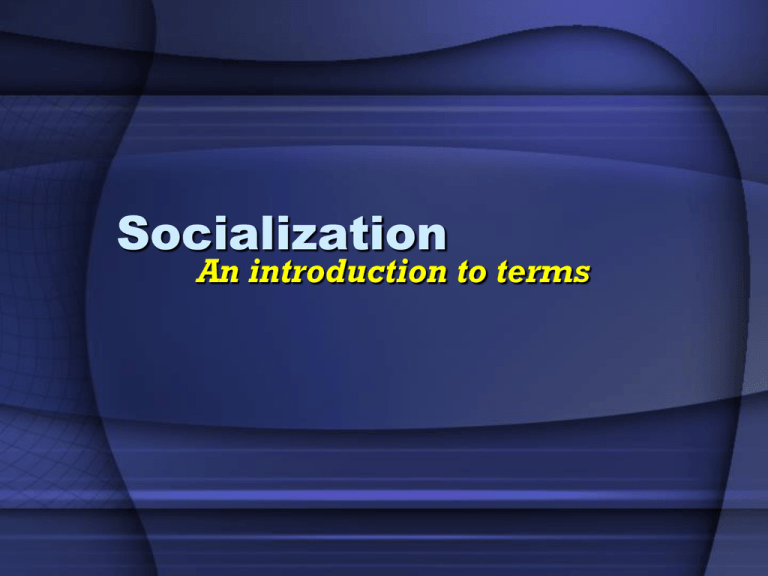
Socialization
An introduction to terms
What is Socialization
• “the lifelong process through which
we learn all the knowledge, skills,
and attitudes that we, as humans,
need to survive and prosper within a
specific culture”
What is Socialization
• Sociologists focus on how people learn the basic
rules and attitudes of human behavior that are
considered acceptable in our society (ie. Don’t pick
your nose)
• Psychologists focus more on the development of
human personality, and the acquisition of those
personal characteristics that make each individual
unique (how well balanced are we, how selfconfident are we)
• Anthropologists see socialization as the means by
which permanent human societies are produced
(most important processes of socialization- marriage,
family, the household)
Three components…
1. Primary – where we learn how to
use language, eat, deal with
emotions, and learn gender roles
- Comprises the basic understanding
we need to function in the society to
which we are born
2. Secondary – where we begin to
learn how to function in groups
(such as school, church, etc.)
- How to follow the behaviours society
expects of us while acting in group
situations
3. Anticipatory – Where we learn how
to think ahead and act accordingly
(acquisition of social norms)
- How to dress for a particular social
situation?
- How should we address a teacher?
4. Resocialization- the deliberate
attempt by society to replace
aspects of an individuals socialization
with new learning's
- New recruits to the military
- Inmates who get released from jail
What are ‘Agents of Socialization’?
• “individuals, organizations and
individuals that facilitate the
process of socialization”
Hmmm……
• With a small group (3 to 4 people),
brainstorm a list of major agents of
socialization.
Family
• First agent! (for most)
• Teaches…
–
–
–
–
–
Independence
Gender roles
Social norms
Right vs. wrong
Awareness of personal qualities
School
• ‘two’ curriculums
– Manifest function (formal curriculum)
• Teaches academic and work related skills
– Latent function (‘hidden’ curriculum)
• Teaches social expectations and rules
– Ex. Organization, punctuality, cooperation
Peer Group (friends)
• Important ‘agent’ during
adolescence
• Development of ‘self’ and personal
identity
– Smoking, sex, continued family
relationship, etc…
•Role of peer pressure?!?!?
Media
• Includes…print, electronic, music,
visual
• Enormous impact during
adolescence
– Especially when partnered with peer
groups
• Usually presented as absolute or
unquestionable
Religion
• Direct vs. indirect exposure
• Decreasing ‘enrollment’
• Impact on personal morals
Workplace
• Impact on teamwork skills
• Different expectations and
consequences than other agents
provide
What would happen if a child
was removed from some or all
of these agents?
Feral Children: aka ‘Wild Child’. Raised
by animals in their natural habitat.
Exhibits animal like behaviours.
Isolates: children that have been
physically, socially, or emotionally
removed from others, and therefore
have not been properly socialized.


